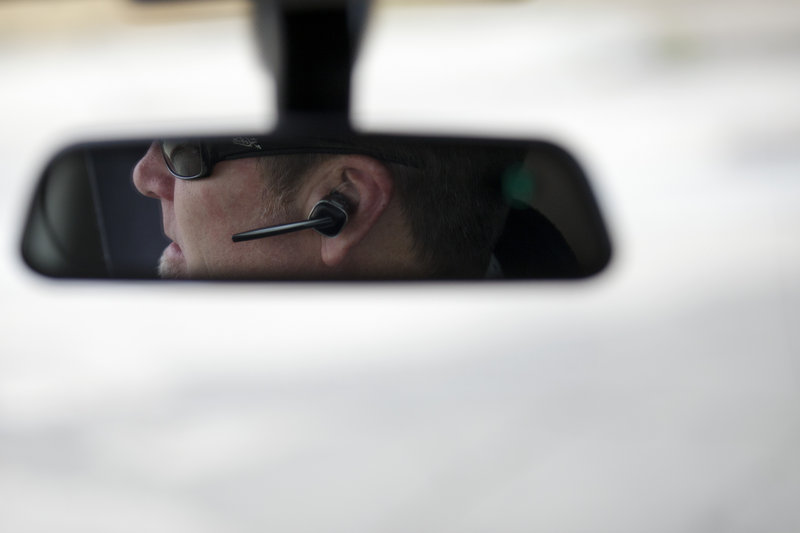Most people would agree that driving is a demanding activity that takes all of a driver’s attention. And they would agree that distracting a driver creates a risk and that even a small mistake by someone behind the wheel can be deadly.
So do we all agree that drivers should leave their cellphones in their pockets when they are hurtling down the highway? Hardly, but the case against using these devices gets stronger all the time.
Last week, a report by scientists at the University of Utah revealed findings about dangerous activities in moving vehicles. The researchers found that using speech-to-text devices, which allow drivers to send and receive messages without taking their eyes off the road, is the most dangerous practice. It’s more hazardous even than regular texting, which is illegal in 40 states, including Maine.
This may seem impossible to people who believed that hands-free devices were the answer to the distracted-driving problem, but the researchers found it’s not just a matter of hands or eyes, but demand for attention that creates the risk.
The researchers called it “inattention blindness” and say that taking a driver’s mind off what he’s doing is as bad as covering his eyes.
The longer it takes to complete a task using a voice-activated device, whether composing an email or setting a GPS device, the less likely the driver is able to understand what’s happening on the road.
Subjects in the study were looking at changing conditions in a driving simulator, but they didn’t register what they saw when they were concentrating on a voice-activated device. This activity is more distracting than changing a radio station or talking to a passenger because it requires more mental focus.
This is the latest piece of bad news for a country addicted to both driving and using electronic devices. It is reminiscent of the years when study after study detailed the dangers of smoking cigarettes, but people were still too stubborn to quit. Cellphone use has become so ubiquitous, it will be hard to get people to give it up.
That’s where policymakers should step in.
We already know enough to say that driving is incompatible with telephone use, either hand-held or hands-free. Vehicles should not be equipped with communications and other devices that are designed to be used by motorists at the same time as they drive.
Driving while distracted is deadly, and we all have a responsibility to keep our roads safe. We don’t need to wait for another study before we act.
Send questions/comments to the editors.



Success. Please wait for the page to reload. If the page does not reload within 5 seconds, please refresh the page.
Enter your email and password to access comments.
Hi, to comment on stories you must . This profile is in addition to your subscription and website login.
Already have a commenting profile? .
Invalid username/password.
Please check your email to confirm and complete your registration.
Only subscribers are eligible to post comments. Please subscribe or login first for digital access. Here’s why.
Use the form below to reset your password. When you've submitted your account email, we will send an email with a reset code.